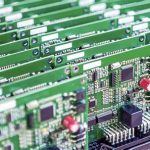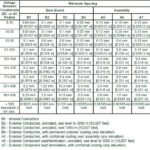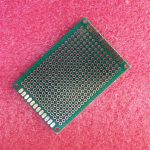Introduction to Express PCB
Express PCB is a rapid prototyping and small-scale production service for printed circuit boards (PCBs). This service allows designers and engineers to quickly fabricate and assemble their PCB designs, reducing the time and cost associated with traditional PCB manufacturing processes. Express PCB Services typically offer fast turnaround times, often delivering completed boards within a few days to a week.
Benefits of Express PCB
- Quick turnaround times
- Cost-effective for prototyping and small-scale production
- Ability to iterate designs rapidly
- Reduced inventory costs
- Access to advanced manufacturing capabilities
Key Considerations for Express PCB Manufacturing
When utilizing Express PCB services, there are several important factors to consider to ensure the success of your project. These considerations include design guidelines, material selection, manufacturing capabilities, and assembly options.
Design Guidelines
Adhering to the design guidelines provided by your Express PCB manufacturer is crucial for ensuring the manufacturability and reliability of your PCBs. Some key design guidelines to keep in mind include:
- Minimum trace width and spacing
- Minimum drill size
- Clearance and creepage distances
- Solder mask and silkscreen requirements
- Panelization and routing guidelines
Material Selection
Choosing the appropriate materials for your Express PCB project is essential for meeting your performance, reliability, and cost requirements. Common PCB materials include:
- FR-4: A popular, cost-effective material for general-purpose applications
- High-Tg FR-4: Offers improved thermal stability and reliability
- Polyimide: Suitable for high-temperature and flexible applications
- Aluminum: Used for heat dissipation in power electronics
- Rogers materials: Designed for high-frequency and RF applications
Manufacturing Capabilities
Express PCB manufacturers offer a range of manufacturing capabilities to support various design requirements. Some key capabilities to consider include:
- Number of layers: Single-sided, double-sided, or multi-layer boards
- Minimum feature sizes: Trace width, spacing, and drill sizes
- Surface finishes: HASL, ENIG, OSP, or Immersion Silver/Tin
- Impedance control: For high-speed and RF designs
- Blind and buried vias: For increased routing density
Assembly Options
Many Express PCB services also offer assembly options, allowing you to receive fully populated boards. When considering assembly, keep the following factors in mind:
- Component types: SMD, through-hole, or mixed
- Component sizes: 0201, 0402, 0603, etc.
- Soldering techniques: Reflow, wave, or hand soldering
- Testing and inspection: AOI, X-ray, or functional testing
- Programming and firmware loading
Express PCB Workflow
Understanding the Express PCB workflow can help you streamline your design and manufacturing process. A typical workflow includes the following steps:
- Design creation: Develop your PCB design using EDA software
- Design review: Check your design against the manufacturer’s guidelines
- File preparation: Generate manufacturing files (Gerber, drill, BOM, etc.)
- Quotation and ordering: Submit your files for quotation and place an order
- Manufacturing and assembly: The manufacturer fabricates and assembles your boards
- Inspection and testing: Quality control and functional testing are performed
- Shipping and delivery: The completed boards are shipped to you

Common Pitfalls and How to Avoid Them
To ensure the success of your Express PCB project, it’s important to be aware of common pitfalls and take steps to avoid them. Some common issues include:
Design Errors
- Incorrect footprints or pinouts
- Insufficient clearances or creepage distances
- Improper layer stackup or impedance control
- Inadequate power or ground plane design
To avoid design errors, thoroughly review your design against the manufacturer’s guidelines and best practices. Consider using design rule checks (DRC) and other validation tools provided by your EDA software.
File Preparation Mistakes
- Incomplete or incorrect Gerber files
- Missing or inaccurate drill files
- Incorrect file formats or naming conventions
- Inconsistencies between design files and BOM
Double-check your manufacturing files before submitting them to the manufacturer. Ensure that all necessary files are included and that they adhere to the manufacturer’s requirements.
Communication Gaps
- Unclear or incomplete design requirements
- Misunderstandings about manufacturing capabilities or limitations
- Inadequate documentation or instructions for assembly
- Lack of timely communication or responsiveness
Maintain clear and open communication with your Express PCB manufacturer throughout the project. Provide detailed and accurate information about your design requirements, and promptly respond to any questions or concerns raised by the manufacturer.
Quality Control Issues
- Insufficient testing or inspection
- Inadequate or incorrect component sourcing
- Improper handling or packaging of completed boards
- Lack of traceability or documentation
Work with your Express PCB manufacturer to establish robust quality control processes. This may include specifying testing and inspection requirements, providing approved vendor lists for components, and defining packaging and shipping standards.
Case Studies and Success Stories
To illustrate the benefits and potential of Express PCB manufacturing, let’s explore a few case studies and success stories.
Case Study 1: Rapid Prototyping for Medical Devices
A medical device startup needed to quickly prototype a new wearable sensor design. By utilizing an Express PCB service, they were able to:
- Fabricate and assemble 10 prototype boards within 5 days
- Iterate on their design based on initial testing results
- Finalize their design and move into small-scale production within 3 weeks
The rapid prototyping capabilities of Express PCB allowed the startup to accelerate their development timeline and bring their product to market faster.
Case Study 2: Cost-Effective Small-Scale Production
An electronics manufacturer needed to produce a small batch of 100 boards for a niche market application. Express PCB services enabled them to:
- Produce the boards at a lower cost compared to their in-house manufacturing capabilities
- Free up internal resources for higher-volume production runs
- Deliver the boards to their customer within 2 weeks
By outsourcing the small-scale production to an Express PCB manufacturer, the electronics manufacturer was able to reduce costs and improve their responsiveness to customer needs.
Success Story: Enabling Innovation in Academia
A university research team was developing a new sensor platform for environmental monitoring. Express PCB services allowed them to:
- Rapidly prototype and test multiple sensor configurations
- Collaborate with external partners by sharing design files and prototypes
- Publish their research findings and contribute to the scientific community
The accessibility and speed of Express PCB manufacturing empowered the research team to innovate and advance their field of study.
Trends and Future Developments
As technology advances, the Express PCB industry is continually evolving to meet the changing needs of designers and engineers. Some trends and future developments to watch include:
- Faster turnaround times: Manufacturers are constantly working to streamline their processes and reduce lead times.
- Expanded material options: New materials with unique properties are being developed and introduced.
- Improved design tools: EDA software is becoming more intelligent, offering valuable support.
- Greater customization options: Manufacturers are providing more flexibility in terms of design features and service options.
- Industry 4.0 integration: Automation, data analytics, and the Internet of Things (IoT) are transforming PCB manufacturing.
By keeping an eye on these trends and future developments, designers and engineers can better leverage the advantages of Express PCB manufacturing.
Frequently Asked Questions (FAQ)
1. What is the typical turnaround time for Express PCB services?
Express PCB services typically offer turnaround times ranging from 24 hours to 10 days, depending on the complexity of the design and the manufacturing options selected. Many manufacturers offer expedited services for an additional fee, allowing for even faster turnaround times.
2. What design files are required for Express PCB manufacturing?
The specific design files required may vary between manufacturers, but the most common files include:
- Gerber files: These files contain the layout information for each layer of the PCB.
- Drill files: These files specify the location, size, and type of holes to be drilled in the board.
- Bill of Materials (BOM): This file lists all the components and their quantities required for assembly.
- Assembly files: These files, such as Pick and Place (PNP) and Centroid files, provide information for automated assembly processes.
3. How much does Express PCB Manufacturing Cost?
The cost of Express PCB manufacturing varies depending on factors such as the size of the board, the number of layers, the quantity ordered, and the manufacturing options selected. As a rough guide, prices can range from $50 to $1000 or more per board, with discounts often available for larger quantities.
4. What are the minimum and maximum quantities for Express PCB orders?
Express PCB services typically cater to prototyping and small-scale production, with minimum order quantities ranging from 1 to 100 boards. Maximum quantities can vary, but most manufacturers can handle orders up to a few thousand boards. For larger production runs, traditional PCB manufacturing may be more cost-effective.
5. Can I use Express PCB services for production runs?
While Express PCB services are primarily designed for prototyping and small-scale production, some manufacturers do offer services for medium-volume production runs. However, for larger volumes, traditional PCB manufacturing is often more cost-effective and efficient. It’s best to discuss your specific requirements with your chosen manufacturer to determine the most suitable option.
Conclusion
Express PCB manufacturing and assembly services provide designers and engineers with a fast and cost-effective solution for prototyping and small-scale production. By understanding the key considerations, workflow, and common pitfalls associated with Express PCB, you can successfully leverage these services to accelerate your design and development process.
As technology continues to advance, the Express PCB industry will evolve to meet the changing needs of the electronics community. By staying informed about the latest trends and developments, designers and engineers can make the most of this valuable resource and bring their innovative ideas to life.
| Advantages of Express PCB | Potential Drawbacks |
|---|---|
| Fast turnaround times | Higher costs for larger quantities |
| Cost-effective for prototyping and small-scale production | Limited material and manufacturing options compared to traditional PCB |
| Ability to iterate designs rapidly | Potential for longer lead times during peak demand |
| Access to advanced manufacturing capabilities | Less suitable for high-volume production runs |
By carefully weighing the advantages and potential drawbacks of Express PCB manufacturing, designers and engineers can make informed decisions about when and how to utilize these services for their projects. With the right approach and a strong understanding of the process, Express PCB can be a powerful tool for bringing innovative electronic products to market quickly and efficiently.






Leave a Reply